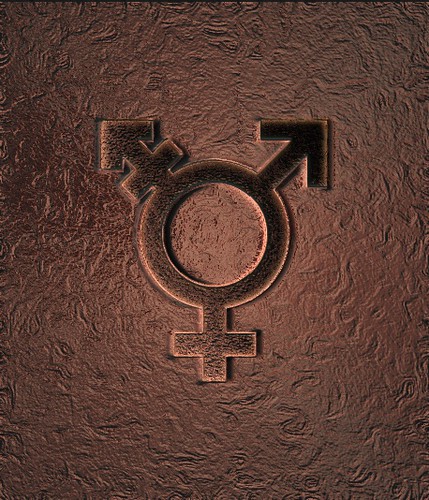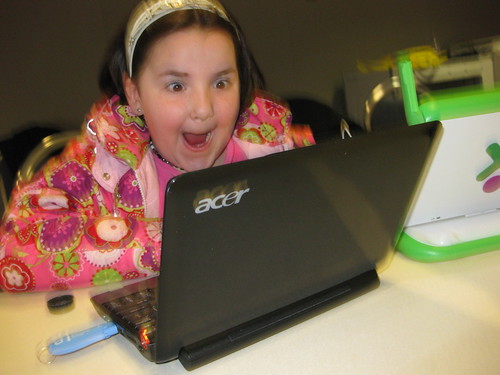 |
| Flickr photo by soopahgrover |
B and I were both raised Catholic. B's parents wanted their children to attend Catholic schools, but our local parish elementary school didn't offer kindergarten. Her parents had to send B to a public school--where she met me. After beginning our friendship at five, B transferred to the Catholic school for first through sixth grade. We still saw each other, though, because girls from our two schools were in the same Girl Scout troop. We became friends, discovering that we had a lot in common: we both liked to ride bikes, hike, canoe and camp.
In seventh grade we were reunited for junior high. School was bigger and scarier, and I was happy to see B's familiar face. We hung out together at lunch and in between classes, and we always introduced each other as, "my friend since kindergarten." During those two years I had some health and family problems that greatly interfered with regular attendance. It was hard for me to make friends, but B was always there for me. She was nonjudgmental, caring, and just...a friend. If I unloaded my feelings about the things happening in my life, she didn't run away or make fun of me--she was unflappable, a true friend.
When it was time for high school, I was pretty lost. I'd missed a lot of school and didn't feel very comfortable around most of my peers. The first day of ninth grade I got on the school bus, scared to death of riding into unfamiliar territory. I was the third person on the bus. As I climbed the steps, peering at the bus driver, I got extremely anxious. I looked warily towards the back of the bus to see who was there and breathed a sigh of relief when I saw that it was B and her older brother. I was so thankful to have my friend and her brother--a senior no less!--to make me feel more at ease in my new surroundings.
B and I continued our friendship throughout high school. B even continued in Girl Scouts--camping, canoeing and biking all over the country. We still saw each other daily and hung out some, but our teenage rebellions were of a different variety: she hung with what we called the "burn-outs" and I hung out with the "punkers." Our paths crossed often (rebels are rebels, after all!) We still talked, still introduced each other as, "my friend since kindergarten."
After high school, B and I went to different colleges in different states. We lost touch. I attended a high school reunion or two hoping to see her, but she never made an appearance. When the information superhighway opened, our alma mater started an online directory. I input my information hoping that some old friends would contact me. I was eventually rewarded by an email from B in my inbox! Perhaps the most amazing thing about the Internet is the way it helps to reunite old friends. I was so happy to reclaim my friend of 25 years! But that email from B wasn't a regular "hi, how are you" email. B's email was a confession: a coming out. B wrote that she was living happily with her partner in Oregon, where they were raising dogs together and doing the things that B has always liked to do--hiking, biking and camping.
In my mind, that email changed nothing. She was still B, one of my oldest friends. Who am I to judge one of my oldest friends for who she falls in love with? I fell in love with a black man. Many people in the world see that as something unnatural. I cannot judge B for falling in love with a woman.
B and I emailed back and forth a couple of times, but that was it...until one of my colleagues convinced me to join Facebook. Soon after my first login I got message from a guy named D, who happened to have the same last name as my friend B. I mentally ran through B's brother's names in my head and soon realized that there was no D in that family...hmmm...who was this D? Curious, I read the message and discovered that D and B were the same person.
 |
| Flickr photo by PhotoComiX |
I can't imagine the emotional pain B went through before finding the courage to become transgendered. I can't imagine the physical, psychological, social and emotional upheaval that must go along with such a change. I know that it has cost a lot of money, caused a lot of hardship, and taken a long time. But I do believe my friend is happier now. I have followed the latest news of his transformation on LiveJournal. I am amazed to read on Facebook about the difficulties he's encountered: D is over forty and has no credit history. B has a credit history, but B is no longer a functional identity. Without a credit history or job history, D has trouble getting loans to pay for housing, vehicles, and medical procedures. It is not an easy life. I am impressed by the courage of my old friend.
It took me a few months to remember to call him "D" instead of "B," and to say "him" instead of "her." But the bottom line is this: names and pronouns are simply functional parts of speech. They are not the important human stuff that comprises my friend. For more than 35 years I've known the spirit of a person. That person and I grew up together, shared experiences together. I respected my friend's spirit when we were five and I respect it now. Just because the external package housing that spirit has changed, it does not mean that the spirit inside has changed. My friend is still my friend.








